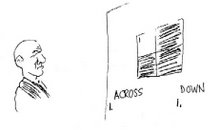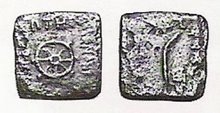Beyond the apparent level, one typically reacts to stimulation of the senses with either craving or aversion. The color, shape, or intensity of light stimulates vision, sounds seem pleasing or disturbing to the ear, tastes please or disturb one through the tongue, smells stimulate through the nose. Something tangible to touch or a thought surfacing in the mind are each processed by our consciousness with an emotional component as well as a logical component.
The Buddha discerned 'actual reality' beneath 'apparent reality.' He surmised that through contact with sensual objects, i.e. salayatana paccaya phasso, a emotional response emerges in the mind, i.e. phassa paccaya vedana. And this emotional reaction to the 'stimulus of sensations' is often one of craving or aversion, i.e. vedana paccaya tanha. This is the actual reality of mind.
When one sees a rope casting a shadow in the twilight, one might fear it as a snake until one confronts that emotion (fear) and investigates the cause of the shadow. When one has approached close enough to discover it is only an old discarded rope, how foolish one feels. Fear, as an example, is often the result of foolishness.
To extend the point: by attending to our 'feelings of sensation' it becomes obvious that one cannot harm another being without first generating a defilement in the mind. One cannot kill a fellow being without animosity. One cannot steal without greed or craving. One cannot commit rape or adultery without lust or passion. Also, one cannot utter wrong speech without some prepared defilement in the mind. Wrong speech is not the use of a foul word or the correction of an error; it is speech behind which is the intent to inflict harm upon another being.
Tuesday, November 4, 2008
Subscribe to:
Post Comments (Atom)








No comments:
Post a Comment